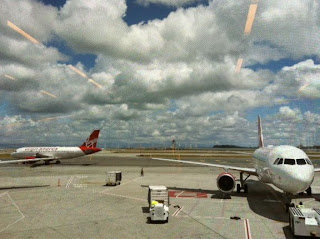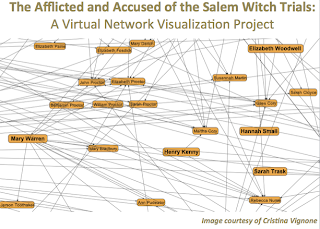TravelBlog: The Erotic Life of Data, or LOD-LAM and the Pursuit of Compatible Data
 |
| Linked Open Data Summit meeting planning board, Day 1 |
“Sharing is caring, but linking is loving.”
— Laura Smart, June 3, 2011
Spoken with the acoustic equivalent of a wink, Caltech metadata librarian Laura Smart’s wrap-up in the closing circle of the LOD-LAM Summit captured that unspoken je ne sais quoi that infused the two-day conference on Linked Open Data in Libraries, Archives and Museums Summit. Organized by Jon Voss and Kris Carpenter Negulescu, with support from the Sloan Foundation, the National Endowment for the Humanities Office of Digital Humanities, and the Internet Archive, a certain juicy enthusiasm for the possible permeated the meeting that otherwise revolved around the more technical matters of the relative merits of XML, JSON, and RDFa. A hankering for limitless understanding and knowledge, akin to the promise of the apple in the Garden of Eden, imbued the meeting with something like desire without an object, something like what the Lacanian psychoanalysts might call a feminine jouissance. The idea of everything linked to everything else, of infinite connectivity, has that expansive pre-Oedipal appeal that can make anything less seem petty, vulgar, even obscene.
Just after the June 2-3rd LOD-LAM meeting wound down, three major search engine players — Google, Microsoft Bing, and Yahoo — announced that they had agreed to conform to the new standards developed by schema.org. And two weeks later, at a panel on funding opportunities at the DH-2011 conference (notably marked with a psychedelic pink and orange “summer of DH-love” theme), NEH-ODH Director Brett Bobley observed that, “Linked open data is getting really hot.” In the month of June, linked open data was just about everywhere one turned, often accompanied by its delightfully disruptive partners open source code and open access repositories. The possibilities for linked open data and an emerging semantic web were beginning to unfold as realities.
But what does linked open data mean for us, for you and me? As one LOD-LAM Summit participant pointed out, linked open data may sound awesome, but do you really want your banking data to be linked and open? Maybe not so much. How about those medical records that are rapidly going online? Hmmh. Probably not. Linked open data holds within it the possibilities for the machine-reading of vast quantities of data, yielding results that we can’t possibly foresee. The promise of the view of everything, the ultimate digitally-enhanced panopticon, arrives without ethical boundaries. Completely transparent data leaves open the possibility not just of the bliss of connection, but the paranoia of exposure.
So what is the middle ground here, between the eros of linked open data and the terror of naked exposure? Between the boundless, possibly unnavigable sea of open data and the Babel of incompatible coding, proprietary silos and paywall obstructions?
The breakout group convened by Eric Kansa of UC Berkeley’s I-School arrived at a moderate plan. We crafted an agenda for making data linkable rather than necessarily linked. Kansa described the context we’ve been working with: in 2002 there were 35 different projects created in response to the cultural heritage crisis in Iraq precipitated by the U.S. invasion of that nation, yet none of these projects had interoperable data. This led the Institute for Museum and Library Services (IMLS) to respond by developing a focus on interoperable data for digital collections and content and prompted Kansa and his colleagues to develop the Open Contexts project for cultural heritage data.
Our LOD-LAM breakout group developed a measured, incremental proposal. We proposed a set of readability standards that all might be applied to all online data to support link-ability. Among the recommendations:
- (X)HTML and CSS be validated code (devoid of those funky little coding errors that allow it to run, but hang it up when moving from platform to platform)
- code has a mobile version (via CSS)
- code be ADA (Americans with Disabilities Act) compliant
- pages have a print version (via CSS)
- pages be machine read-able – in XML, RFD or JSON
- all coding to use a mark-up with metadata standard and relevant to the specific field (VrayCore, DarwinCore, and other community vocabularies and schemas)
- all objects have unique permalink
Our goal was compatibility, or interoperability, among various data rather than immediate linked open data. In the overall erotics of data, if linking is loving, then linkable is loveable. The goal of compatible or interoperable data is to ensure that the data remains linkable/loveable even as fashions in programming, metadata, and platforms change with time. Linkable, loveable: that’s compatible data.
All you need is love. And data standards.
This is the second of several blog posts chronicling a June of DH Travel. Next up: “On Place and Space,” reporting on site visits to Georgetown University’s Center for New Designs in Learning and Scholarship, and the University of Virginia’s Scholar’s Lab.
Please note: Opinions expressed in the TravelBlog briefs of the Fordham Digital Humanities do not necessarily reflect the views of my home institution.
—Micki McGee










